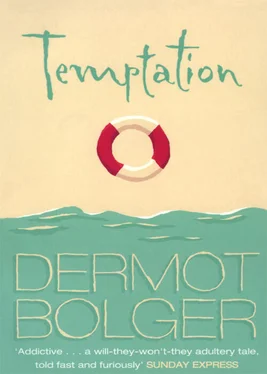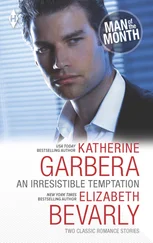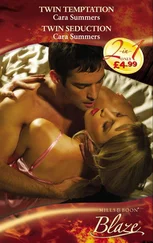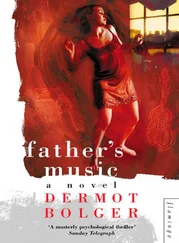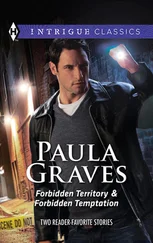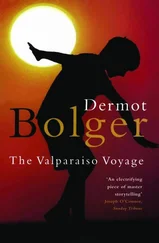Standing at the train window, he had seemed to change before her eyes. Hidden fragments of his life tumbled out that she strove to piece together. This was the first occasion when she properly understood that parents had previous lives and secrets. Listening to him had reminded her of a boy with his nose pressed against a shop window. Always on the outside, describing the clothes guests wore to dinner back then, the size of the dining room, the musicians who played. All as glimpsed from a kitchen sink, between the swish of a swing door opening and closing as waiters came and went. Now he had decided to return with his wife and daughter in his own private triumph.
Alison could remember the tiny station at Rosslare and the steep hump–backed bridge where the sea suddenly glistened into sight. They had walked the few hundred yards to the hotel, him in front with two heavy suitcases, she and her mother straggling slightly behind. She had felt a nervousness for her father. He seemed out of his depth, striding forward with a frighteningly boyish eagerness. Even at twelve she sensed he was going to be disappointed by the fact that nobody knew him, no one recalled his hands scrubbing pots in scalding water, nobody would understand the momentous nature of his return.
Yet all this she only fully understood years later, when Danny was two and Alison spent a week in Waterford after her father’s funeral, sorting out clothes and personal effects, filling in the gaps of his life through them. He had known poverty in Waterford as a boy and later on in London. Yet he always took whatever work would provide a home for his wife and his two London–born sons. The younger boy was ten before he returned to Waterford to work in the glass factory and the afterthought or mistake occurred that became her. That was a question you didn’t ask your parents back then, even if in adolescence the doubt had tortured her.
Either way all she knew was love, unburdened by the expectations that Peadar seemed to carry from his earliest years. She still remembered hearing her father rise an hour before the rest of them, the bolt being drawn back and his boots on the path disturbing her childhood sleep as he set off for the early shift. Surely he was sick sometimes but she never recalled it. He had simply got on with what had to be done for his children. But that trip to Fitzgerald’s had been for him alone. It was the moment when he could rest among the soft armchairs and know that his life’s main work was done, with one son married, a second finishing his apprenticeship and his only daughter due to be the first member of his family to ever complete secondary school.
She, meanwhile, had been preoccupied with discovering the swimming pool, the crazy golf, the private beach and the food. She had known her first kiss at Fitzgerald’s, sitting on a rock at twilight near the steps up from the beach. Three days of intense expectation with a thirteen–year–old boy from Newry had built up to that moment. The feel of his tongue for the eternity of a second before she turned and ran off, back up the steps into the safety of childhood. How could you explain time to a child? Ten or twenty years that suddenly pass? It was more than a quarter of a century since her first solitary kiss at Fitzgerald’s. How many lifetimes ago did that moment seem? A foreboding crept over her in the car, a melancholic hangover from last night’s dream. What if this was all the future held, a succession of cars carrying her ever–ageing body down to this hotel? Forty soon, then fifty, sixty. She closed her eyes, feeling the car speed forward, unstoppable, on a journey she had no control over.
She opened them again to glance back at her children’s excited faces. They had passed the last roundabout for Wexford town and the N25 for Waterford. These were the final miles, past the turnoff for Kilmore Quay and through Killinick in the wink of an eye. Sheila silently mouthed the words ‘How much longer?’ and suddenly Alison felt like a child herself again. She strained to glimpse the sign for the turn left, which took them down the wide country road with a dozen signs on every bend for hotels and guesthouses and always, the fourth one down, for Fitzgerald’s.
They were here now, a turn left at a garage, a sharp right again and the railway bridge was before them. Soon the first glimpse of the sea. The children craned their necks forward. But it was different for them, not like the solitary time she had come all those years ago. They expected this as a right, year after year, their break at Fitzgerald’s, remarkable and yet routine. They were excited, yet she wanted their excitement to be more. She half resented the fact they were not shouting with joy. She wanted brass bands, she didn’t know what she wanted. She wanted to look out and see her father straining under his suitcases. She wanted to call, ‘We’re here by right now, Dad, year after year.’ She wanted to feel twelve again. She wanted to cry, remembering how she had honestly expected never to see this hotel again except as a woman riddled with cancer.
Peadar turned left and suddenly it was there, on the right, rising up in cream and blue, with tennis courts visible and palm trees in the garden. Every year something changed, every year something new, but still always it was Fitzgerald’s.
The car park on the left was crammed with sleek cars, with one battered old van incongruously among them. Peadar drove in through the cream pillars and found a spot near the grass. He flung his door open, his shoulders stiff from driving, and opened the back door for Danny to jump up into his arms. He threw his son into the air and caught him as Danny raised his fist like he’d scored a goal.
‘Fitzgerald’s,’ Danny said. ‘We’re here, Daddy, we’re here!’
Shane and Sheila clambered out, running to the wall to peer across at it. Their faces were mesmerised. Peadar walked around the car to put his arm around her, then looked down.
‘Hey,’ he asked quietly, ‘why are you crying?’
She looked at him. She remembered her mother dying, her father lost and left behind. She remembered herself as an overlooked child in this hotel, the future she had imagined. She remembered how close that BMW had come to killing them, the coldness of Dr O’Gorman’s hand on her breast. Alison put her arms around him.
‘You big fool,’ she said. ‘I’m crying because I’m happy.’
The welcoming sherry reception was in the foyer at seven o’clock. In the early years Peadar and herself had laughed at it and never attended, but now it seemed an integral part of their holiday. By six–thirty the major unpacking was done and strolling down to the foyer forced her to relax. The boys were asking about it from the time they had taken their first swim at half–four. To them ‘reception’ had the same ring as ‘party’ and a party was still a party even if it only consisted of adults in suits chatting away on the striped sofas.
She knew they would get bored of it within minutes. Once they had clung to her side as Sheila did now, with the colouring book and crayons she would soon tire of and demand to be snuggled up instead on Alison’s knee. The boys waited only to get glasses of orange juice from the bow–tied waiters at the white table beside the dining room windows. Danny drained his glass and called to Shane. Like a shadow, his younger brother followed him down the corridor, ready to turn the slightest occurrence into an adventure.
Alison was happy to let them go, once she could keep an eye on the main doorway. Danny had finally reached an age to explore by himself and she knew how he loved to delve into every corner and alcove of the hotel. There were so many rooms he would have to peek into: the card room that was always empty; the smoking room with its blazing log fire even on summer nights; the TV room where Geraldine and Aoife, the children’s activities co–ordinators, were already screening the first evening’s video. The boys would settle down to watch it shortly, but Danny still insisted on either Peadar or her sitting in an armchair in the corridor. For all his new found toughness, ghosts and dinosaurs frightened him and they would have to be within reach if the film grew too scary.
Читать дальше
